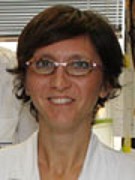
Discussion
In most Lysosomal Storage Disorders (LSD) hematopoietic stem cell (HSC) transplantation is not or poorly effective. HSC gene therapy could ameliorate the outcome of allogeneic transplant and provide an expectation of efficacious treatment for these LSD. HSC can be genetically modified to express supra-normal levels of the therapeutic enzyme, and become a quantitatively more effective source of functional enzyme than normal donor’s cells. Moreover, autologous HSC are immediately available, thus saving precious time in rapidly progressing forms, and can significantly reduce transplant-related morbidity and mortality. We are thus implementing an innovative approach based on the transplantation of autologous, gene corrected HSC for the treatment of severe LSD lacking efficacious and safe therapeutic opportunities. To this goal, we exploit the features of lentiviral vectors (LV). By using LV for HSC gene correction, we proved the therapeutic potential of HSC gene therapy in the murine model of three different LSDs. In the case of metachromatic leukodystrophy (MLD), a severe dysmyelinating LSD, preclinical research led to Phase I/II clinical testing. Indeed, a clinical trial of HSC gene therapy for MLD is currently on going. Evidence of tolerability and safety of the proposed approach, as well as of therapeutic efficacy in the treated patients have been obtained. The same approach has been applied with success to the murine models of type I Mucopolysaccharidosis (MPS I), a LSD characterized by visceral organ, skeleton and nervous system involvement, and of globoid leukodystrophy (GLD), a demyelinating LSD similar to MLD. A clinical development plan for these two diseases has been started with a Phase I/II trial of HSC gene therapy for MPSI patients planned for late 2015. We are also experimentally addressing the critical need of enhancing brain microglia turnover with donor cells following HCT in order to anticipate the time of clinical benefit and improve the efficacy of the transplant procedure. This work thus far provided hints for designing novel and less invasive approaches for treating LSDs having a prevalent or exclusive CNS involvement.


